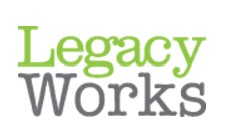
Who To Pick As Your Successor When There Is No One To Choose?
By John H. Robinson, Financial Planner (December 2024)
The conventional elder/estate planning guidance is for people to designate qualified family members and/or close friends to make decisions on their behalf if they are physically or mentally unable to do so and to distribute their assets according to their documented wishes upon their passing. But what if there is no suitable person to fill those roles?
This scenario comes up surprisingly often in Financial Planning Hawaii an Fee-Only Planning Hawaii client conversations. The most common instances are clients who are in their 70s or 80s and have no children or children who live on the mainland. In some instances, these people named their closest friends to fill the successor role many years ago, but now they are aging out, too. In other instances, even if family is present, there may be no one qualified or able to step into that role.
Think Carefully Before Naming a Bank or Brokerage Trust Company
In these instances, estate planning and elder law attorneys often encourage people to list a corporate trustee, such as a bank or brokerage trust company. I often push back against this recommendation. There are several reasons for my objection. First, when these institutions step in to take over, they typically want to control everything including portfolio management and tax return preparation, but they often do not have any insight into the client's financial planning history or details. Additionally, in my experience, the institutions are usually adequately suited for financial management and recordkeeping but are not great on the personal side with tasks such as selecting and monitoring caregivers, making sure the client is getting adequate socialization and mental stimulation, etc. They can also be expensive, bureaucratic, and difficult to remove.
For A More Personal Approach, Consider Independent Trustee Alternatives
For our Hawaii clients, one resource that you should at least be aware of and consider as a starting point is The Caregiver Foundation. As it says on the organization’s website,
“The Caregiver Foundation is a Hawaii-based, non-profit organization whose mission is to provide practical and emotional support to Seniors, Disabled Adults and their Caregivers.”
Additionally, readers should also be aware of the existence of professional independent trustee services. These firms are often staffed by people with previous experience in trust companies who set out to provide a more personal successor trustee and estate administration experience. An example of one such firm in Hawaii is Legacy Works.
https://legacyworkshawaii.com/about-us
Using Legacy Works as an example of an independent trustee, they work with the client's existing legal, tax, and financial advisors to provide continuity. They also offer high-touch services to make sure their clients' physical, mental, social, and emotional needs are being met. Upon the client’s passing, they offer complete estate management, settlement, and distribution services.
I wrote this article because we have several clients in Hawaii and on the mainland who have reached out for guidance on successor and elder-care planning. I was recently introduced to Legacy Works and am delighted to have them as a resource. Unfortunately, I do not have any great resources for our mainland clients. Independent trustees are not commonplace, so finding an organization similar to Legacy Works (or Caregiver Foundation) in your area may be challenging. A great place to start may be by sharing this article with your estate planning or elder law attorney.


